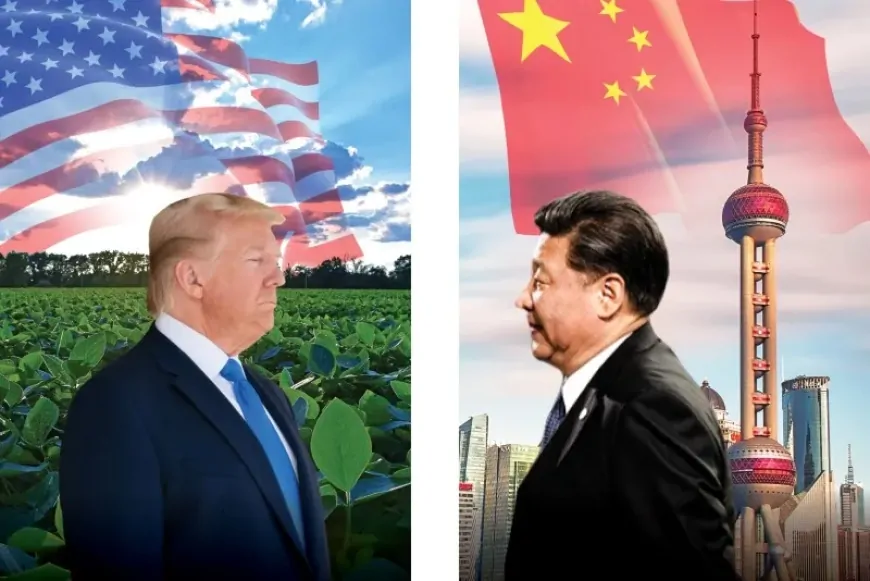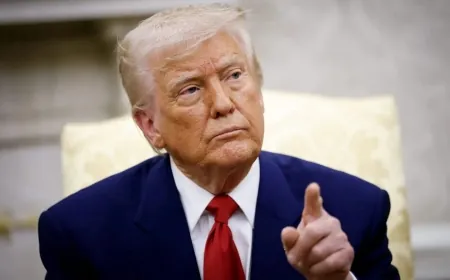China Could Crash U.S. Economy by Selling $1 Trillion in Debt—Will It Happen?
China’s $1T threat to dump U.S. debt could shake global markets—but experts say it might hurt China more than America. Here’s what’s really at stake.

China has responded forcefully to the latest US trade actions, escalating tensions between the world’s two largest economies. Last week, Beijing announced 34% retaliatory tariffs on a range of US goods — a move that spooked markets and triggered a sharp sell-off across Asia. On Monday, Hong Kong’s Hang Seng Index fell by 13.2%, its biggest single-day drop since 1997, while China’s CSI300 index slipped 7%.
The Chinese government has described the US-imposed tariffs as “economic bullying,” and analysts are now watching closely for what Beijing might do next. Among the options China holds is one that could have global consequences — selling off its massive holdings of US government debt.
China’s Leverage: Holding Trillions in US Bonds
China is the second-largest foreign holder of US Treasury bonds, with official figures showing $761 billion in holdings as of January. However, some economists estimate the real number is closer to $1 trillion when including bonds held via European accounts.
If China decided to sell a large portion of these bonds, the impact on the US economy could be severe. Bond values would drop, yields would spike, and the US government’s borrowing costs would surge — putting significant pressure on public finances and markets.
Why China Is Unlikely to Pull the Trigger
Despite the dramatic potential of such a move, most experts say it’s highly improbable. Economically, the damage to China could be just as great — if not worse — than the impact on the US.
“Dumping treasuries would be like throwing a grenade at someone sitting across from you,” says Mark Williams, chief Asia economist at Capital Economics. “Sure, they’d get hurt — but so would you.”
China’s central bank and state-owned institutions hold about $3 trillion in dollar-denominated assets. Selling even a portion of those assets would drive down the value of the dollar, slashing the worth of what China still holds. And bringing those funds back into China would likely cause the renminbi to rise in value, hurting the country’s export competitiveness.
US Has Tools to Neutralize the Threat
Even if China did attempt a mass sell-off of US bonds, it’s likely the US Federal Reserve would intervene immediately. Analysts say the Fed would launch a major bond-buying program — similar to the quantitative easing seen during the pandemic — to stabilize the market.
Robin Brooks, senior fellow at the Brookings Institution, explains: “The Fed could step in with massive bond purchases to bring yields back down. That takes away much of China’s leverage.”
A similar scenario played out in March 2020, when emerging markets sold US Treasuries to stabilize their own currencies. Yields briefly jumped from 0.5% to 1.2% before the Fed bought $1.2 trillion in bonds to calm the markets.
A Dangerous Game with Global Consequences
Even if China won’t sell its US debt, the threat of escalating economic warfare still looms. The US could impose financial sanctions on Chinese banks, similar to those it used against Russia, cutting off access to the global dollar system — a move that would shake international markets.
“China would be shooting itself in the foot,” says Marcello Estevão of the Institute for International Finance. “But that doesn’t mean the situation can’t spiral out of control.”
Trade tensions between Washington and Beijing have reached new highs, and while both sides still have room to de-escalate, the risks to global trade, investment, and financial stability are higher than they’ve been in years.
Also Read: Trump Tariffs Trigger Market Chaos — 50+ Nations Rush to White House for Trade Talks
































































